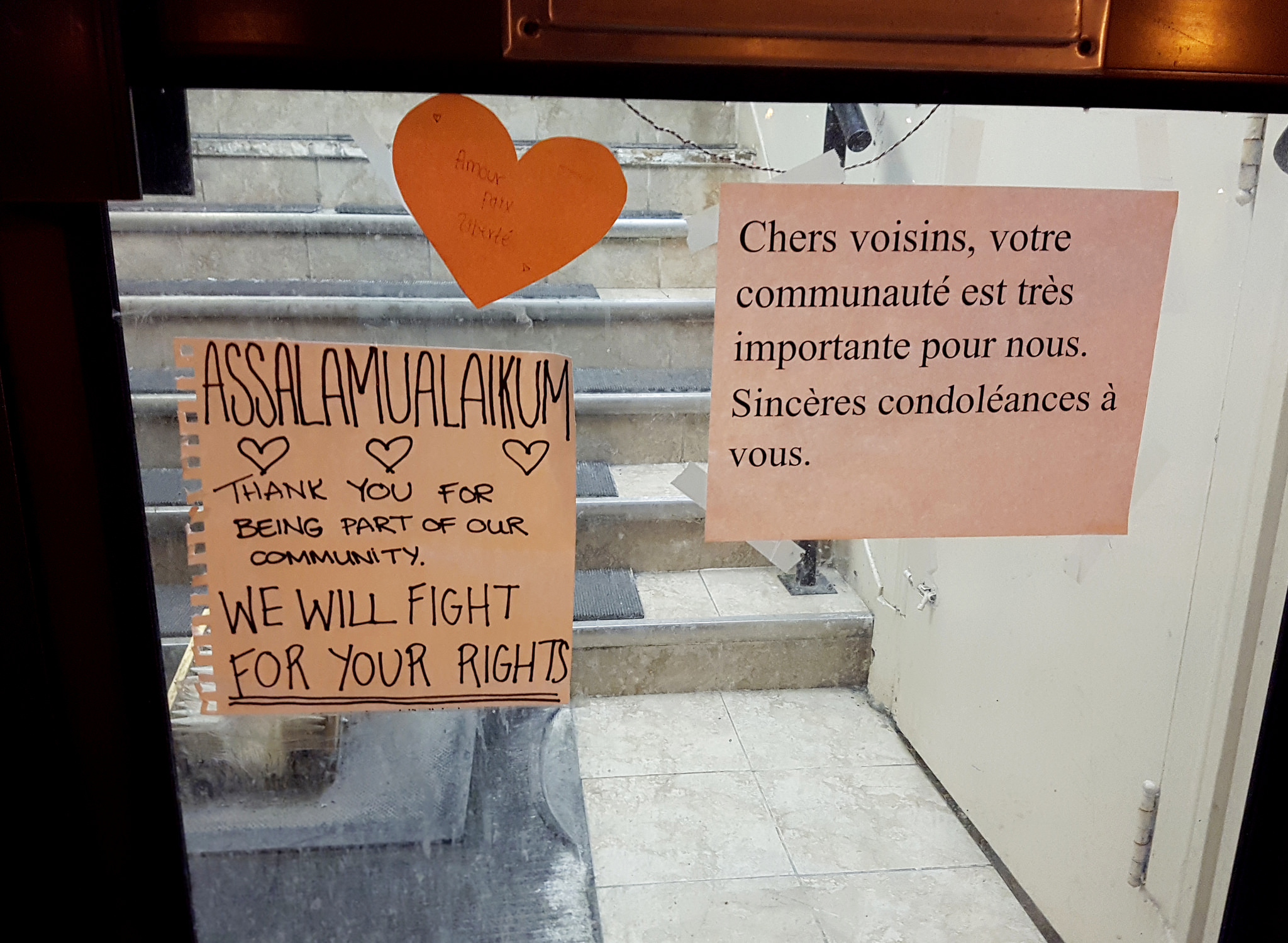It’s hard not to feel disappointed that the government’s response to last month’s M-103 report is, ironically, more consultations. The M-103 report itself was the result of hearings with 77 witnesses. And despite being mandated to finish within six months, the M-103 report took almost a year to complete. For the religious communities involved, it’s fair to question whether the government really cares to concretely address the problem of Islamophobia and religious discrimination in Canada.
Lest we forget, Parliament’s recent report on religious discrimination was launched as a result of motion M-103, debated one year ago in Parliament. M-103 itself was motivated largely by an attack on a Quebec City mosque on Jan. 29, 2017 which left six Muslim Canadians dead. Motion M-103 and its resulting report were not some sort of “academic exercise” to assess a hypothetical problem. Rather, Islamophobia and religious discrimination were real problems which clearly were resulting in death, lost job opportunities, exclusion and division in Canadian society.
So while M-103 and its resulting study had a mandate to look at all religious discrimination, there is no doubt that the scourge of Islamophobia was driving the M-103 process. Global events had led to an upsurge in anti-Muslim sentiments in Canada. As a comparatively new immigrant community, Canada’s nascent Muslim communities are less well-positioned to leverage the programs and assistance available to them. Being less familiar with Canadians institutions, Canada’s Muslims are less likely to report the racism and hate crimes they face, or to otherwise invoke the protections afforded by Canadian society.
For many across the political spectrum, the need for a new wave of consultations is not apparent, and the Trudeau government has provided no justification for last week’s announcements. In such circumstances, it’s fair to ask, “What do we hope to learn from such consultations that we don’t already know.” The main body of the M-103 report was almost 70 pages long and offered 30 well-thought-out recommendations spanning the breadth of the concerns the committee had heard. While recommendation #1 of the report made mention of additional consultations, it did not suggest that such consultations would be expansive, or a pre-requisite to other prompt and concrete action.
Indeed, Canadian Heritage spokesperson Simon Ross suggested last week that the consultations wouldn’t be large-scale, but this is hardly reassuring to those who see the need for prompt action. Past consultations carried out by the Trudeau government have taken months to complete and are inevitably followed by months required to develop a summary report.
Another valid concern expressed by many is whether such consultations would simply create more polarization across Canadian society. If Quebec’s Bouchard-Taylor commission on religious accommodation was any indication, such consultations seemed to deepen tensions. The Commission’s hearings were packed, and tended to bring out individuals with the most extreme views across society. Over time, the acrimony between competing views only seemed to worsen and expand as the Bouchard-Taylor commission moved from city to city.
More recently, opposition to the Quebec government’s attempt to hold consultations around religious discrimination created such intense backlash that the Couillard government backtracked and repositioned its plan. Last year’s rancorous debate around motion M-103 demonstrated that discussions around Islamophobia and religious discrimination tend to spawn angry and irrational rhetoric laced with “alternative facts.” Those urging the federal Liberals to be cautious with more “consultations” are spot on.
There are blatant islamophobes across Canadians society–they can be found in comment pages across the internet–but they are the exception. The greater challenge faced by Canada’s Muslims is systemic racism: a racism whereby Mike’s resume is chosen over Mohammed’s even though both are equally qualified for a job; a racism whereby the police dismiss complaints by a Muslim citizen because that individual dresses differently; a racism whereby a Canadian municipality approves zoning for a new church immediately, but takes two years to do the same for a new mosque.
Nobody would argue that consultations are a bad thing. But when they seem unjustified, are likely to exacerbate problems, and appear to delay real action, it’s right to question them. The latest federal budget provided funding to enhance multiculturalism in Canada. This funding could be used to implement several of the specific recommendations of the M-103 report: more resources for law enforcement to prevent Islamophobia and religious discrimination; more sensitivity training for government service employees; new funding for newly established institutions among Canada’s religious minorities.
Canada’s Muslims face Islamophobia on a daily basis: missing out on jobs, facing obstacles to integration and enduring racist slurs. They should no longer have to wait for action from this government.
Image: Flickr/Fredisonfire
Like this article? Please chip in to keep stories like these coming.




